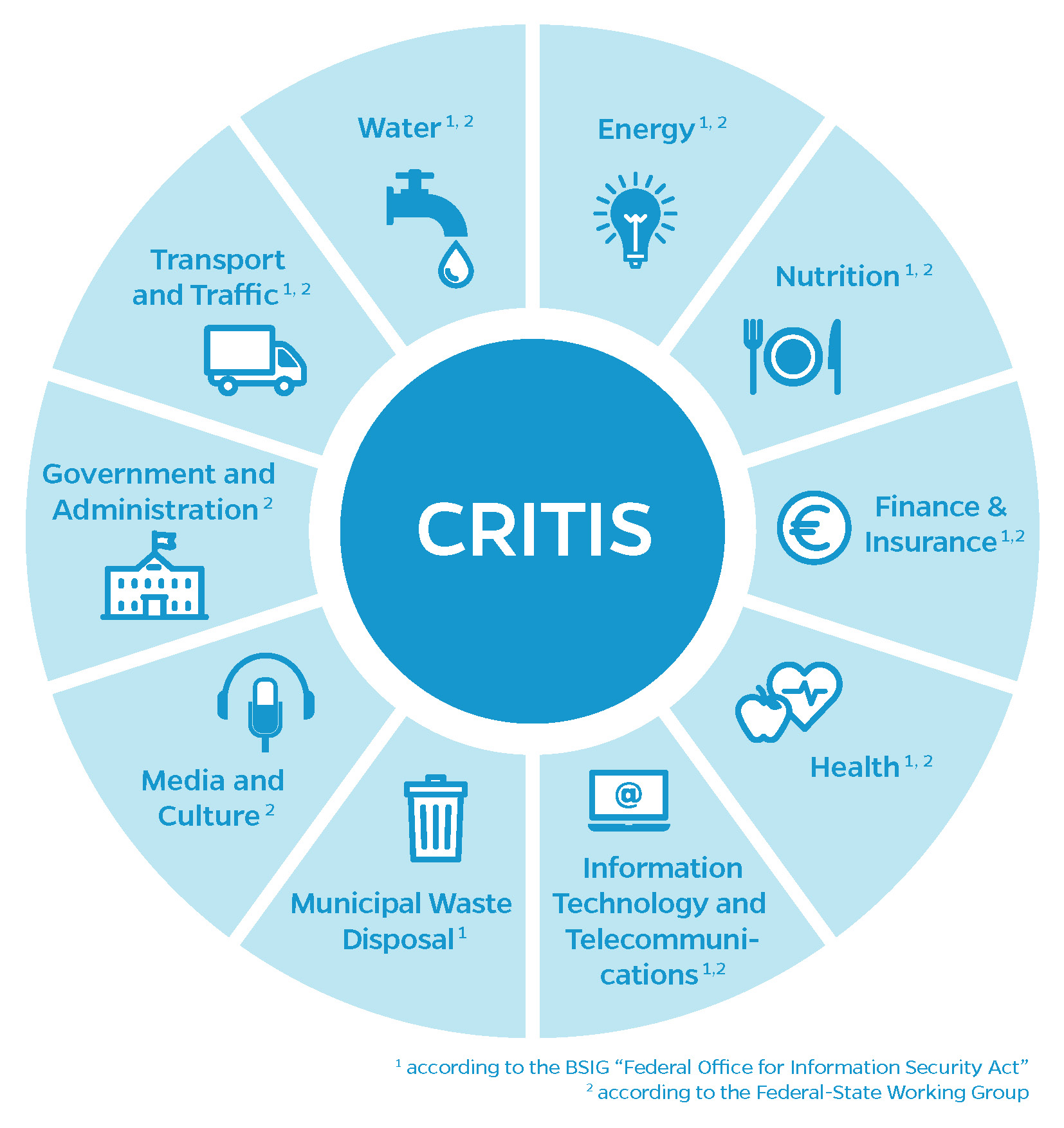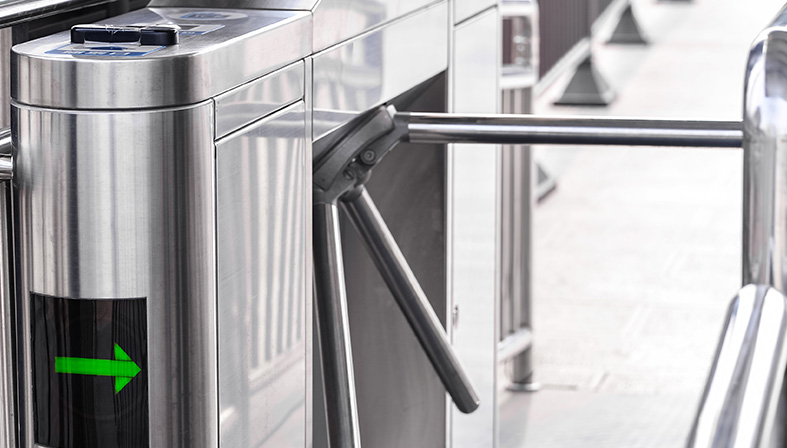Security solutions for critical infrastructures
Protect your critical infrastructure
Operators of critical infrastructure make a hugely important contribution to the security of supply in Germany. Accordingly, it is all the more important that their systems, areas and buildings, as well as their employees, are protected by state-of-the-art security solutions against attacks and sabotage.
Interflex solutions for access control support implementing legal requirements and obligations imposed by supervisory authorities across industries.
The goal: a high level of physical and digital security.

Industries and sectors with critical infrastructure
Operators of infrastructures count among CRITIS companies. Since 2021, 10 industries or sectors are included in this category. It is their task to guarantee the security of supply of important services in Germany.
The reliable physical protection of facilities and sensitive company areas is therefore crucial. They are obligated by law to guarantee the reliable operation of their facilities and to regularly give account about their security concept to supervisory authorities, such as the German Federal Office for Information Security (BSI).
The implementation of the EU Directive NIS2 and the CRITIS Umbrella Act (EU RCE Directive)fundamentally changes the sectors and operator logic in Germany as of 10/2024. In addition to the previous operators of critical facilities (CRITIS), medium-sized companies and large corporations are now included.
Security is not an option: This is what is important for CRITIS companies
Cyber criminals are increasingly focusing on critical infrastructure companies, which become victims of sabotage and digital espionage. It is high time to review and renew their security concept. Because resulting from the current legal regulations, such as the German Security Act 2.0, many operators of facilities now also count among the critical infrastructures.
They are requested to implement the high security standards. This also includes concepts for access control. On the other hand, more than a few affected companies still rely on partly outdated systems. Unpatched software and vulnerabilities additionally increase the risk. This doesn’t have to be that way.
Protect yourself with the integrated solutions from Interflex for access control that will prepare you optimally for these current challenges and requirements.
Digital as well as physical attacks to critical facilities, but also unintentional malfunctions result in failures. These deeply damage the trust in the security of supply.
The most important tasks of security officers therefore include:
In the long term, it is vital to protect company values and maintain the integrity of the company grounds and secure the fail-safety of the infrastructure.
Guiding principles of CRITIS: High security requirements
Operators of critical infrastructures are requested to regularly check the security of their infrastructures, furnish evidence of security standards and keep measures taken up to date. The guiding principles with extensive obligations and requirements have been defined by legal regulations for years. The implementation of EU Directives NIS2 and RCE/CER into national laws will change the CRITIS regulation in the coming years.
CRITIS is regulated by the following laws:
CRITIS – and now what? This is why Interflex is the right partner
Access control from Interflex is an optimized overall solution of hardware, software and in-house services – Made in Germany. It is designed to fulfill the requirement of the BSI (German Federal Office for Information Security) on building security and the strict statutory regulations for a technical secure and It-based efficient solution. Because for us reliable physical protection is the foundation of a comprehensive security concept.
Our system software IF-6040 enables you to smoothly implement complex access concepts for your company, your facilities and sensitive area – no matter whether you want to include security zones, turnstiles with 2 factor authentication or biometric solutions. Complicated key management is now a thing of the past, Thanks to the central, partly automated management and real-time control, you can design your access control transparently, but also according to the data minimization principle pursuant to the GDPR. In combination with our hardware products you will gain efficiency and the time resources that you need for your tasks as a security organization.
CRITIS-Current –
this might interest you
Do you have any questions? We are happy to help you!
To reach the appropriate contact person at Interflex, please select the suitable contact method. If you are already a customer, kindly use the Contact form ”I am an Interflex customer” and get in touch with the desired department via email.
If you haven’t had any previous interactions with Interflex but are interested in our solutions, we would be pleased to receive your inquiry through the Contact form ”I am interested in becoming a customer” We will endeavor to respond to you promptly.
Do you have a question, require information, or wish to share feedback with us? Please select the relevant department for your inquiry:

Service:
For technical questions and error reports, please send an email to:


Feedbackmanagement:
Would you like to provide us with feedback? Please feel free to send us an email to:




